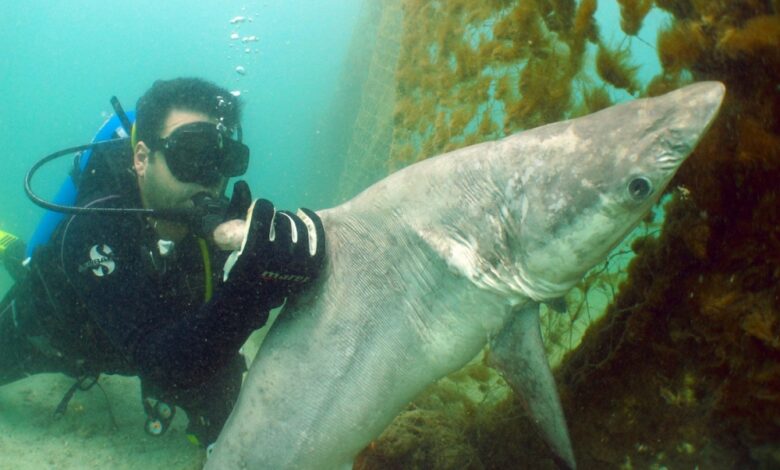Sharks, jellyfish increase in numbers with rising summer temperatures in Kuwaiti waters

Walid Al-Fadel, head of the Kuwait Diving Team affiliated with the Environmental Voluntary Foundation, revealed that the summer season typically brings a noticeable surge in shark and jellyfish sightings across Kuwait’s coastal waters, largely due to rising sea temperatures.
Speaking to the Kuwait News Agency (KUNA) today, Al-Fadel explained that sharks are particularly more prevalent in the northern waters of Kuwait, especially in areas with muddy sea beds. In contrast, coral reef sharks are found in the southern waters, where they are less common and rarely pose any threat to humans due to their generally harmless nature.
He emphasized that sharks have always been part of Kuwait’s marine ecosystem, playing a critical role in maintaining ecological balance. However, Al-Fadel raised concern over their declining numbers, noting that recent studies show 20 to 30 percent of shark populations have perished due to harmful human practices, including illegal fishing and marine pollution.
Highlighting the Kuwait Diving Team’s longstanding commitment to marine conservation, Al-Fadel said the team has undertaken numerous operations to rescue marine life, including sharks that had become entangled in abandoned fishing nets, particularly around Kubbar Island and offshore Kuwaiti waters.
Turning to jellyfish, Al-Fadel noted that they appear in large swarms during June and July. Their presence can be disruptive, he said, especially to desalination plants, as the mass influx of jellyfish can clog filtration systems. To combat this, preventative nets are often installed at intake points to protect the desalination infrastructure.
Al-Fadel also mentioned the seasonal arrival of “dols,” a type of jellyfish native to Kuwait’s marine environment. Their numbers vary annually, influenced by sea currents and wind patterns. While not fatal, these jellyfish can deliver mild stings. He recommended the public wear full-body swimsuits when swimming during jellyfish season and avoid waters where they are heavily concentrated.
Despite the nuisance they may cause, Al-Fadel stressed that jellyfish are an essential part of the food chain, particularly as a primary food source for sea turtles. He concluded by calling for greater public awareness of marine conservation and caution during summer recreational activities in Kuwaiti waters.












